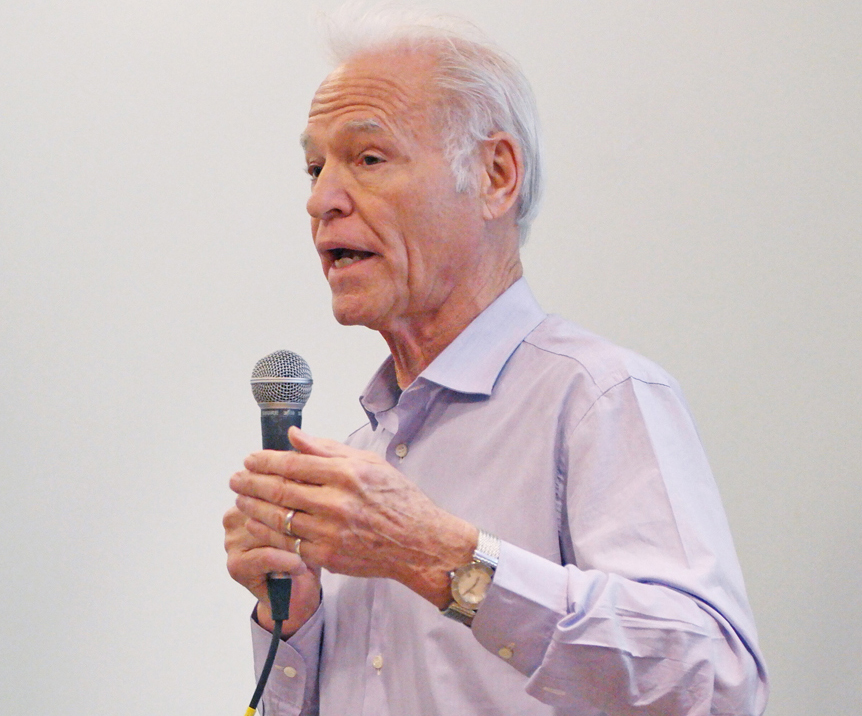
Photo by Milo Hess
BY REBECCA FIORE
Gov. Cuomo duly signed the bill reserving two seats on the Battery Park City Authority board for residents on Dec. 19, but it could be years before it has any effect.
After many years of being blocked in the state Senate, the bill finally passed the legislature over the summer — but only after Cuomo appointed three new members to the seven-member board for six-year terms, none of whom were residents.
Next time there is a vacancy, Cuomo will be obliged to tap a local, as with the next vacancy after that, but even after their terms expire, BPCA board members are not obliged to step down — and nor is the governor required to replace them. They continue to sit on the board until either they resign, die, or the governor appoints a successor.
The board’s vice chairman, Donald Capoccia, has overstayed his term by six months. Chairman Dennis Mehiel will reach the end of his term in June. But neither is obliged to step down unless Coumo wants theme out.
Since Martha Gallo stepped down last April, none of the 15,000 residents of Battery Park City are represented on the board.
The issue of local representation on the BPCA board has been roiling for years, with residents echoing American patriots with complaints of “taxation without representation,” but successive governors have resisted.
In fact, when Cuomo finally relented and signed the bill, he attached a so-called “Approval Message,” according to the Broadsheet, which read “There are technical concerns that would make it difficult to make sure the Battery Park City [Authority] board can function effectively. The Executive has secured an agreement with the Legislature to pass legislation in the upcoming session to address these concerns. On that basis, I am signing this bill.”
The concern, apparently, is over potential conflicts of interest from residents voting on matters affecting their property values or rents according to the Broadsheet.
Longtime BPC resident and Community Board 1 member Tom Goodkind did not mince words when asked about the conflict-of-interest worries.
“To me, that is the most boneheaded thing I’ve ever heard — it’s dumbfounding,” said Goodkind. “You want people engaged and represented the area. [The BPCA board] completely misunderstands the reasoning, or they are just not very bright, or they don’t care.”
CB1 chairman and fellow BPC resident Anthony Notaro was more measured in his assessment.
“Not to have a say in how you are represented was not appropriate, This is democracy at its purest” he said, adding that when a conflict of interest arises there are protocols to follow, such as recusal.
But the chairwoman of CB1’s Battery Park City Committee took issue with the very idea that resident board members voting on issues that affect them would be a conflict in the first place.
“If there was a conflict of interest to serve on a board then you would have no one on a community board. This is about having a say in the goings on of your community,” said Tammy Meltzer.
Meltzer’s predecessor at the helm of the BPC Committee pointed to Gallo’s tenure to poke holes in the governor’s premise.
“Martha was an appointee of the Governor,” said Ninfa Segarra. “The appropriateness of her participation was never challenged. As a matter a fact, her participation helped give a reality check to the board’s proposed actions.”
Meltzer and Segarra both pointed to the Roosevelt Island Operating Corporation, which is a state authority very similar to the BPCA, but is comprised primarily of residents living and working on the island.
Goodkind called even the two-seat plan “half-baked,” saying that the next, much more difficult step would be to have “active locals who are not corporate types for the board — not just yes-women and yes-men. You need to find someone who will fight for the community interest.”
But Meltzer hailed the new law as meaningful progress, though she said it was just the first step in pushing for further board representation.
“It’s absolutely a first step,” she said. “It’s not a final answer. It’s good progress and a long time coming. I am delighted to have two. Is that the ultimate goal? No, but it is a great beginning. It will be fantastic to have residents have a say for what goes on in their own community like they can in every other area in New York City.”

































